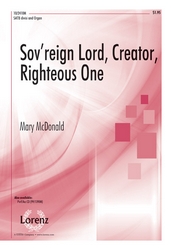- |
User Links
45
Let David Be Remembered (Psalm 132)
Hymn Information
- First Line
- When David had a longing
- Author
- Martin Leckebusch
- Tune Name
- THAXTED
- Composer
- Gustav Holst, 1874-1934 (1921)
- Topic
- Biblical Names and Places: David · Covenant Faithfulness
Copyright Information
- Text Copyright
- © 2003 Kevin Mayhew Ltd.
- Tune Copyright
- Public Domain
- Reprint/Projection Information
- Words: Permitted with a license from CCLI.com or from OneLicense.net. If you do not own one of these licenses, please contact the copyright holder for permission.
- Music: The Music is in the Public Domain; you do not need permission to project or reprint the Music.
Scripture References
Further Reflections on Scripture References
The background narratives which are reflected in this song on Psalm 132 can be found in II Chronicles 22:1-18 (David’s preparation and his charge to Solomon), I Kings 5 (the preparation by Solomon), and II Chronicles 6 (Solomon’s testimony and prayer of dedication of the Temple).
45
Let David Be Remembered (Psalm 132)
Additional Prayers
Optional prayer for Christmas or Pentecost
God of grace and glory,
how we marvel at your ways:
For the Son of David, Son of Mary, Son of God,
who came to dwell among us,
full of grace and truth.
For the gift of your Spirit,
who comes to dwell within us,
making us your temple.
May the ancient prayer be fulfilled in us:
“Let your priests be clothed with righteousness,
and let your faithful shout for joy.”
By the power of your Spirit:
may we, your royal priesthood,
be clothed with righteousness.
may we, your royal priesthood,
shout for joy.
In the name of Jesus, Son of David,
we pray. Amen.
—
Lift Up Your Hearts (http://www.liftupyourheartshymnal.org)
Eternal God,
you fulfilled your promise to give us a Messiah of David’s household.
In Jesus Christ you have clothed us with life and fed us the living bread of his body.
Crowned with the victory of his resurrection, we shout for joy. Amen.
—
Psalms for All Seasons (http://www.psalmsforallseasons.org)
A Prayer of Acclamation
Gracious God, your servant David wanted to build you a house.
Let David be remembered now.
Let David be remembered now.
He wanted to build you a house where you could host your people.
Let David be remembered now.
Let David be remembered now.
You gave us Jesus to be the “Son of David.”
Let David be remembered now; let Jesus be remembered now. Amen.
Let David be remembered now; let Jesus be remembered now. Amen.
—
Cornelius Plantinga, Jr.
45
Let David Be Remembered (Psalm 132)
Tune Information
- Name
- THAXTED
- Key
- B♭ Major
- Meter
- 7.6.7.6 triple
Recordings
45
Let David Be Remembered (Psalm 132)
Hymn Story/Background
One of fifteen "Songs of Ascents" (Psalms 120-134) sung by the Israelites as they went up to worship at the temple in Jerusalem, Psalm 132 was distinctly messianic for Israel as they waited for God's promised restoration of the throne of David. Central to the psalm is the prayer for God's blessing on David's royal Son (st. 1). This prayer comes out of David's deep commitment to provide a permanent home for the LORD's throne (the ark of the covenant) in the midst of the people in order to make the LORD central in Israel's life. The LORD's answer–I will ever uphold and prosper my anointed (st. 2)–is rooted in God's covenant oath to David.
In 1921 Gustav Holst extracted his THAXTED music from the “Jupiter” movement of his astrological orchestral suite, The Planets, Op. 32; it has been associated as a glorious ABA hymn tune with this and other texts.
—
Bert Polman
Author Information
Martin Leckebusch (b. Leicester, England, 1962) was educated at Oriel College before going on to study Mathematics at Oxford and Numerical Analysis at Brunel University. He and his wife, Jane, have four daughters; their second child, a son, died in 1995. The family live in Gloucester and belong to a Baptist church.
Martin’s work in hymnody over the past twenty-five years has resulted in almost 400 hymn texts, of which around half have so far been published by Kevin Mayhew. These include the ever-popular More than Words and Songs of God’s People – books which have cemented his status as a talented and accomplished hymn writer.
Martin is keen to see the church equipped for Christian living, and believes that well-crafted and wisely-used contemporary hymns and songs have a vital role to play in that process.
—
Kevin Mayhew Publishing (http://www.kevinmayhew.com/)
Composer Information
Gustav Holst (b. Chelteham, Gloucestershire, England, September 21, 1874, d. London, England, May 25, 1934) was a renowned British composer and musician. Having studied at Cheltenham Grammar School, he soon obtained a professional position as an organist, and later as choirmaster. In 1892, Holst composed a two-act operetta, which so impressed his father that he borrowed the money to send Holst to the Royal College of Music. Severe neuritis in his right hand later caused him to give up the keyboard, and Holst turned to the trombone and composing. In 1895 Holst met Ralph Vaughan Williams, and the two became lifelong friends. Vaughan Williams helped Holst land his first job as a singing teacher. Holst became very interested in Indian and Hindu culture, and composed a number of operas translated from Sanksrit myths. These were not received well in England, however. Holst is best known for his composition, The Planets, as well as The Hymn of Jesus. The success of these two works garnered Holst the leisure to leave teaching and spend all his time composing. His later works were not met with such great success, however, and Holst’s later years were spent in much weariness, though he continued to write, composing a total of thirty operas. Holst died after an operation left his heart too weak.
—
Laura de Jong
Suggestions or corrections? Contact us


 My Starred Hymns
My Starred Hymns







